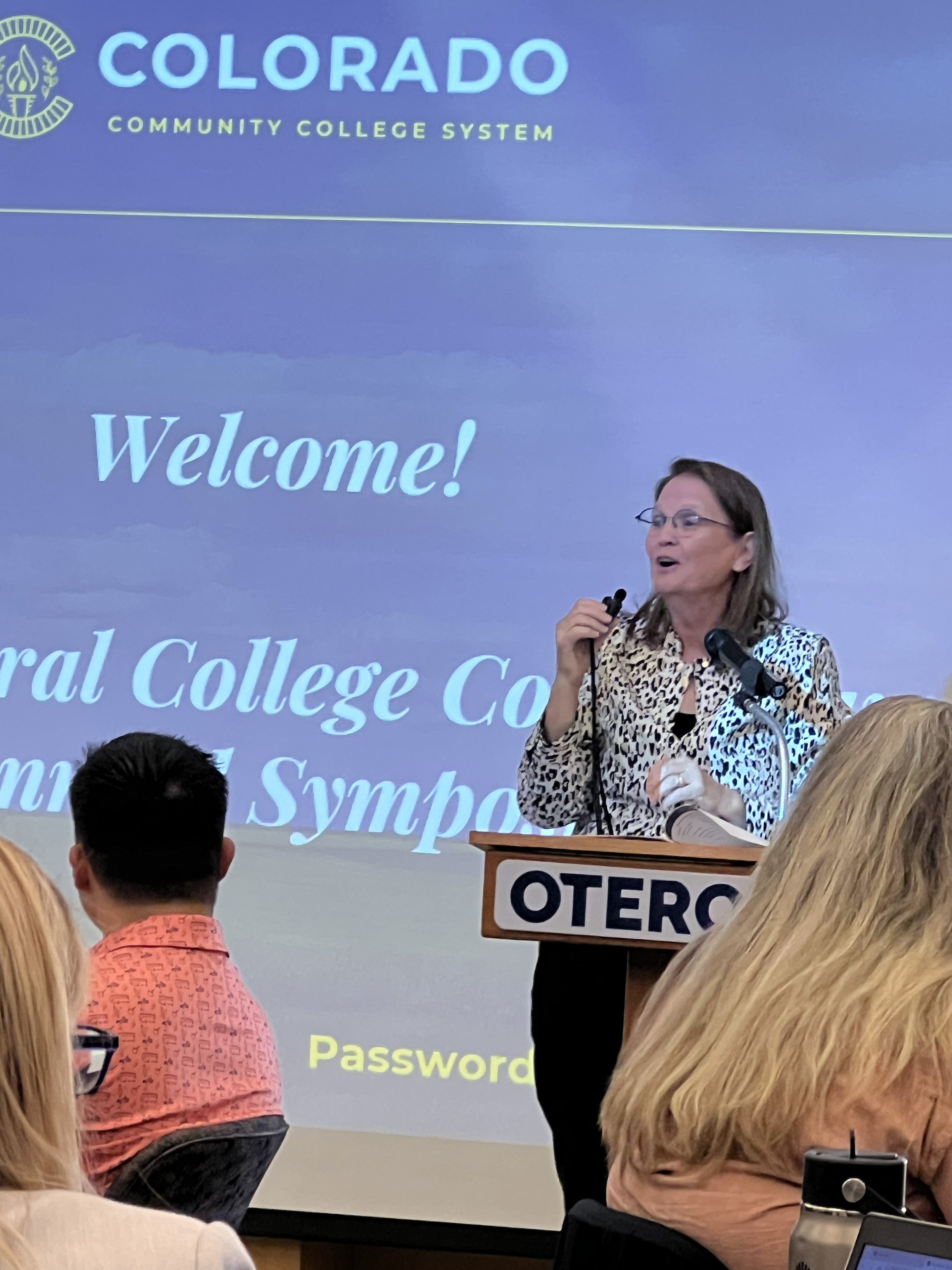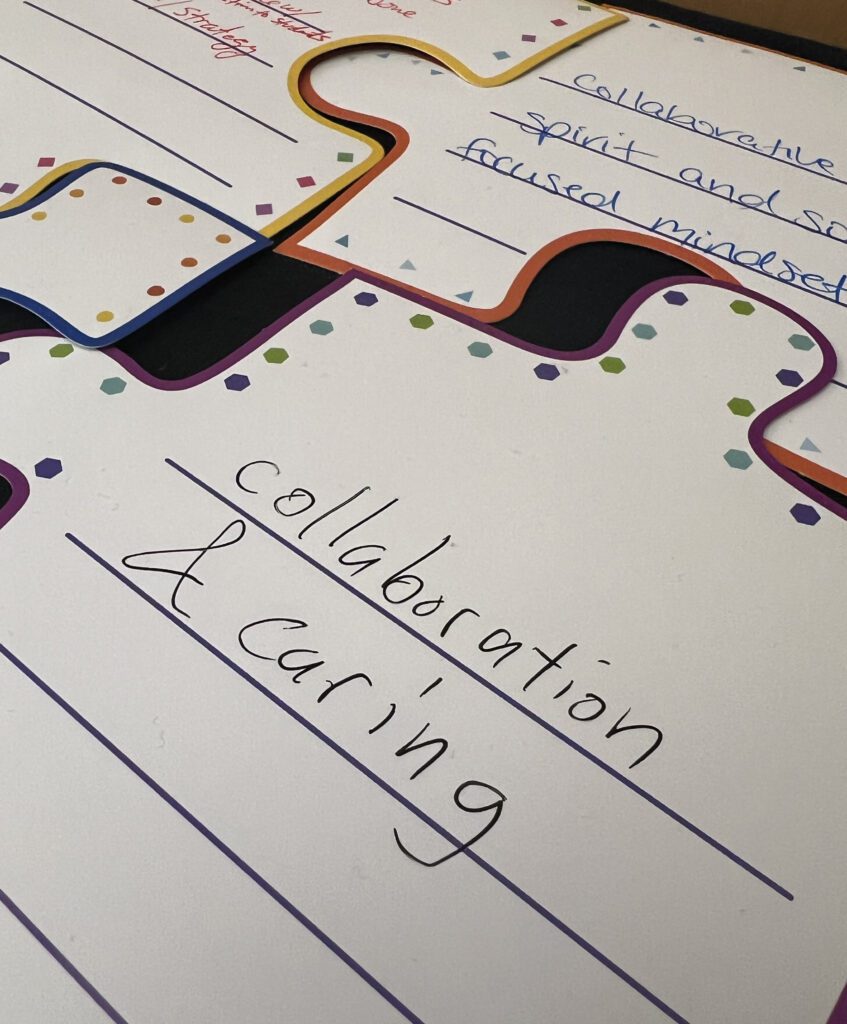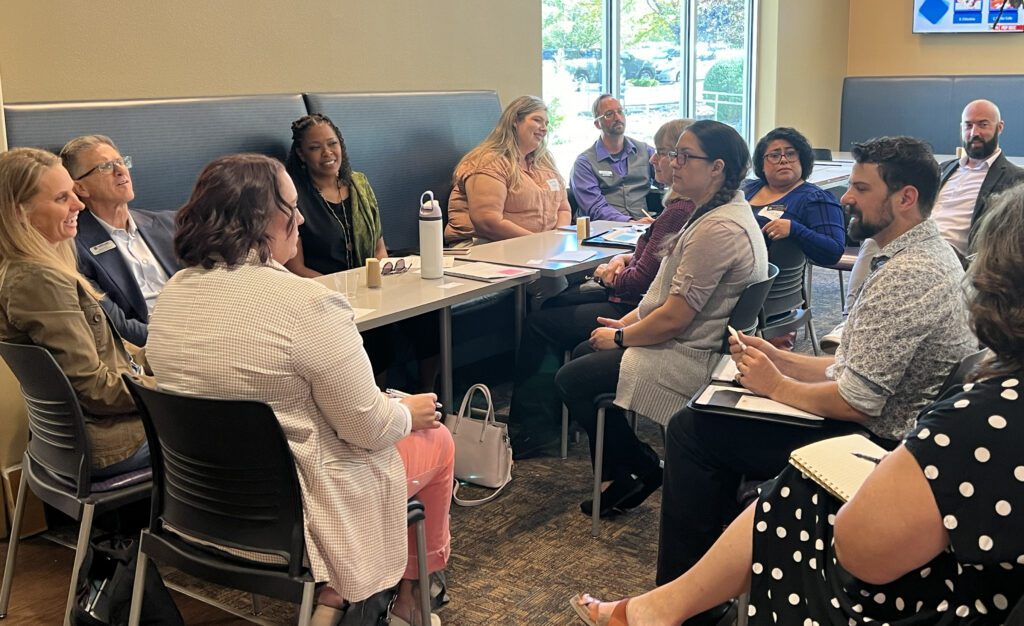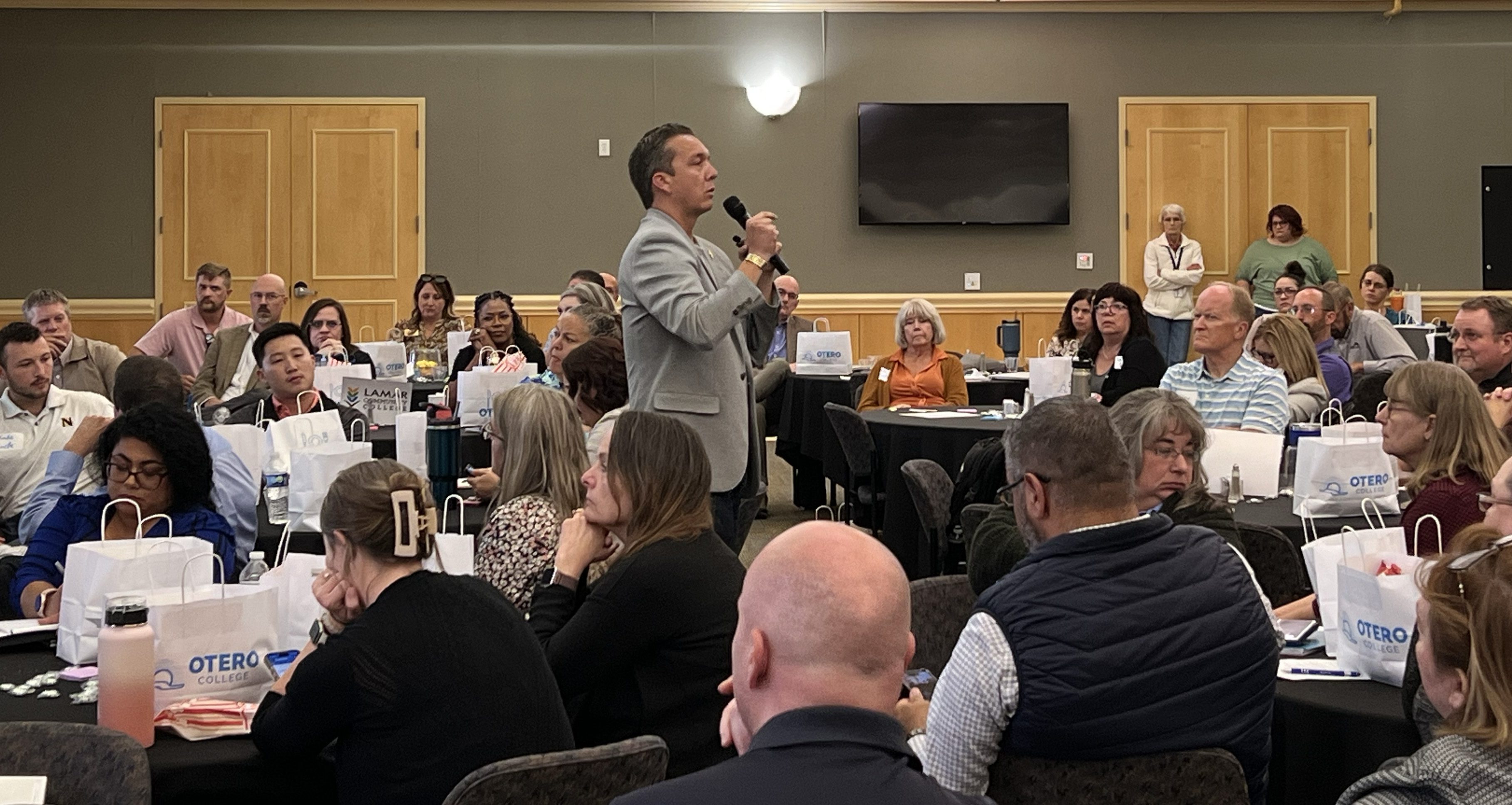
The pioneering spirit is alive and well in Colorado’s rural community colleges and was on full display on September 25 at the Colorado Community College System’s (CCCS) Third Annual Rural College Consortium Symposium.
The Rural College Consortium (RCC) aims to improve access to education and support services for learners in rural communities by connecting courses, programs, and student services across seven CCCS colleges and 16 campuses.
The symposium, held at Otero College in LaJunta, provided a day for rural college representatives who serve in a variety of roles to share their best thinking about how to meet the changing needs and expectations of learners, who increasingly demand:
- Flexible, remote options.
- Career-connected programs with work-based experience.
- Support and services on their terms, not ours – whether it’s mental health services, advising, or career counseling; and
- A sense of belonging.
More than 80 attendees received a warm welcome from Otero College President Dr. Kimberly Zant, followed by comments from CCCS Executive Vice Chancellor Diane Duffy who emphasized the potential that lies ahead, stating “RCC is a game-changer.”
Duffy stated that building new ways to work collaboratively across seven colleges is a journey, not a destination, and the RCC model is structured to help address challenges head -on by creating unified and collaborative ways to work together for success.
Duffy stressed the importance of every individual’s role in the work, and that the sum of the parts is greater than the whole.
“You’re critical because you serve and support disproportionately large, underrepresented populations, including students of color, first-generation learners, migrants, refugees, caregivers, and those in remote areas that would otherwise be overlooked by higher education. You’re also vital to your respective communities – not just as education providers, but as cultural and civic hubs that connect people and drive economic growth.”

You’re critical because you serve and support disproportionately large, underrepresented populations, including students of color, first-generation learners, migrants, refugees, caregivers, and those in remote areas that would otherwise be overlooked by higher education.
Operationalizing the RCC Vision
A timeline of RCC achievements since its inception in 2018, presented by RCC Project Manager Annessa Stagner Stulp, illustrated how collaboration has formed the foundation for the work that lies ahead. Stulp shared details about governance, shared courses and programs, and shared services, setting the framework for the day.

Teams from each college dove into the development of learner personas, examining the needs and potential barriers experienced by the students in their communities. A member from each team shared the characteristics identified and the group considered how the learner voice will inform programming and courses that will be offered by the RCC.
During a working lunch led by CCCS Vice Chancellor for Student Affairs Dr. Sarah Heath, college teams shared characteristics identified in their learner personas, and the group considered how the learner voice will inform programming and courses that will be offered by the RCC. Dr. Heath prompted everyone to think about their own personas, and jot down on oversized puzzle pieces what they will contribute to the shared RCC efforts. When the pieces were placed together, a visual representation emerged that illustrated the depth of abilities and knowledge that will lead to the fulfillment of the RCC vision, as well as an abundance of compassion and student support.
Afternoon breakout sessions brought together those with similar roles from each of the colleges to discuss how to operationalize the vision for sharing programs. Discussions were centered around what has been learned so far in terms of success and challenges, and identifying needs for the future. These conversations covered a range of considerations including faculty needs, compensation, scheduling, student services, program offerings, information technology, communication, and marketing.

Strengths and Opportunities
The day concluded with closing speaker Dr. Landon Mascareñaz, chair of the State Board for Community Colleges and Occupational Education (SBCCOE), addressing the topic Strengths and Opportunities in Colorado’s Rural Communities. Mascareñaz shared examples of regional collaboration that includes community partnership, business engagement, and both K-12 and higher ed working together to align their efforts to meet the needs of today’s learner.

That’s our work – to build it, scale it, and adapt it across every single community in Colorado.
“The future is already here, it’s just not evenly distributed yet,” Mascareñaz said. “Programs…people…partnerships… showing the pathway to what it would mean to build a future for every single learner. That’s our work – to build it, scale it, and adapt it across every single community in Colorado.”
Mascareñaz asked the RCC to consider how we can use the assets we have in our rural communities to create structures and spaces where people can connect to build and change the trajectory of our communities.
“That’s the work that we know will transform our ability to move into that space of economic mobility where more and more of our learners are thriving,” Mascareñaz concluded.


